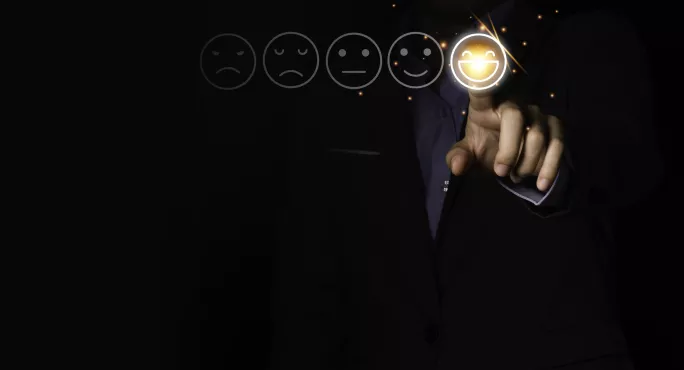- Home
- Has teaching’s reputation changed for good?
Has teaching’s reputation changed for good?

And so, after all of that, the new academic year is here. Students, teachers and leaders are slowly starting to return to whatever the “new normal” looks like in classrooms up and down the country armed with hand sanitiser, masks, visors and a mix of trepidation and hope.
As much as we are all unsure of what is to come in 2020-21, there is at least some time to reflect on the events of the last few months: the centre-assessed grade process, individual and collective lockdown experiences and the reactions people have had to the events of the last few months. In particular, the CAG system has caused more than its fair share of debate, discussion and controversy.
First unfolding in Scotland, the results fallout saw a widening of inequality and seemed to unfairly target those in disadvantaged communities when downgrading. This was followed by a swift and welcome U-turn, which was not immediately followed by the Department for Education. Having finally bowed to pressure to follow the Scottish model, changes were quickly implemented and results day passed with a strange mix of confusion, happiness and anxiety.
But what of those at the centre of the CAG model? What about the perceptions and reactions to teaching, schools/ colleges and teachers?
News: Williamson told to ‘show more humility’ on exams chaos
Opinion: Students learn as much outside as inside the classroom
FE White Paper: What do sector leaders want it to say?
It began as a widespread appreciation, but then...
At the beginning of lockdown, there seemed a widespread appreciation of teachers and teaching: parents struggled to engage their own children while recapping the complexity of complex sentences or the finer points of trigonometry, let alone being able to assess whether any of it had “gone in”.
It slowly seemed to dawn on the collective consciousness of the nation that perhaps we didn’t all roll up at 8.30am, crack open the textbooks, enjoy one or two free lessons and then toddle off at 3.05pm. Perhaps there was more to this teaching lark than 43 weeks of holiday and a pension made of equal parts gold bullion and Amazon shares.
Perhaps it was a highly sophisticated and complex profession which mixed parts educator, subject specialist, diagnostic expert, social worker, welfare officer, carer, leader, communication expert and psychologist. Maybe those who can, do (choose to teach).
Unfortunately, there were signs in the early days of lockdown that not everyone “got it”. As Joe Wicks was first earmarked as a PE curriculum specialist and then nominated for a Nobel Peace Prize, cracks began to appear.
Government statements, headlines and social media began to paint a much starker image.
“Schools must open!”
“When will teachers return to work?”
“Why are teachers complaining? They’ve had all this time off!”
No one seems to have shared this information with the thousands of teaching professionals across the world who have created, developed and implemented some of the most innovative online learning tools in a matter of weeks. For all the praise and criticism directed at Oak National, it was set up quickly and gave a host of resources for free. Better still, the BBC did what it does best - providing information and support in a time of need. Videos, lessons, tasks, quizzes, links and more. All available for free inside a few weeks.
No one seems to have shared the above with the teachers who have tirelessly supported those in need throughout lockdown and beyond, supporting the families of key workers while being unable to see their own.
Overlooking leaders
As is often the case, leaders were also overlooked at times. Branded in some quarters as not up for the fight or not willing to sacrifice for the cause, leaders were quick to implement plans for students to be adequately fed during lockdown, and then holidays. That other much-derided profession, professional footballing, also came to the fore with the outstanding contribution of Manchester United’s Marcus Rashford not only feeding thousands but also forcing a further government U-turn.
So, why the hate? An oft-discussed theory is that everyone feels they have a valid opinion on schools because it is one of the few events everyone has experienced. Though not everyone remembers or discusses the inspirational and supportive teachers (thanks Mr Noble and Mr Lewis, by the way), we always remember the poor ones. Perhaps it is focusing on this which tarnishes the profession for so many others or a focus on the benefits (holidays, perceived workload) and not the challenges.
Whether perceptions of teachers have been amplified or changed, the profession has done itself proud over the last few months and will continue to step into the breach in the immediate and long term future. Regardless of what happens with pubs, numbers allowed to socialise, sports teams and other events, schools and colleges will remain open, and teachers will continue to do what they do best.
Jonny Kay is head of English and maths at a college in the North East
Keep reading for just £1 per month
You've reached your limit of free articles this month. Subscribe for £1 per month for three months and get:
- Unlimited access to all Tes magazine content
- Exclusive subscriber-only stories
- Award-winning email newsletters



